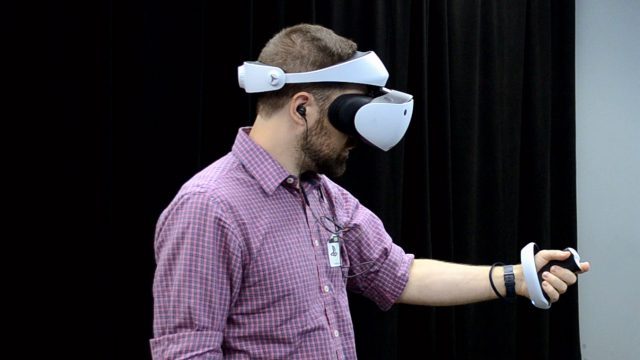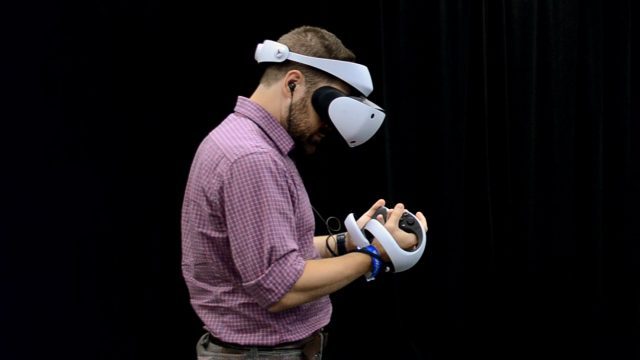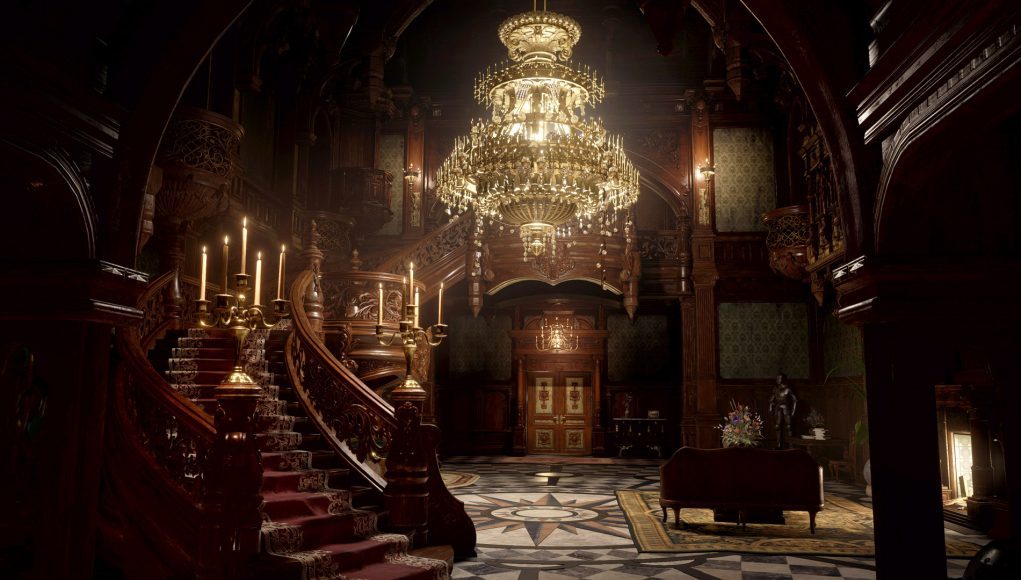Resident Evil Village is one of the best looking games on PS5 to date, and its forthcoming VR version will be one of the best looking games in VR to date. During a hands-on with RE8 on PSVR 2 I found myself entranced by the game’s world which offers up unprecedented levels of detail among VR titles.
Earlier this month I visited Sony’s PlayStation headquarters in San Mateo, CA to see PlayStation VR 2 in person for the first time. Among the four demos I got to play was Resident Evil Village which is being fully ported to the headset.
Check Out Our PSVR 2 Hands-on Coverage:
When talking about the best graphics in VR I’d argue the top title is certainly Half-Life: Alyx. And while Alyx is packed full of detail, much of the game’s scenery is dilapidated buildings & debris or brutalist sci-fi architecture—not exactly the prettiest stuff to look at.
Resident Evil Village, on the other hand, offers up more lively (if sometimes gross and creepy) and terrestrial scenery. Sure, you’ll crawl through dingy tunnels and abandoned basements—and don’t forget the varying monstrosities you’ll face throughout—but you’ll also come across lavishly detailed interiors and excellently animated characters.
In my time with the game on PSVR 2 I was dropped into the castle of Lady Dimitrescu, an imposing vampire matriarch in concert with three evil daughters.
Even in the non-VR version of the game, the lavish interior of the castle is a sight to behold. In VR it’s a genuine feast for the eyes; the interior is packed with a density of detail that is simply unprecedented in VR.
The space is oozing with ornate wooden furniture, extravagant chandeliers, truly beautiful interior architecture, and an array of surprisingly competent artwork hung on the walls of the castle.
In the non-VR version of the game it’s all quite beautiful but most players aren’t going to stop to really breathe it in. In VR, I felt like I couldn’t stop but soak up the tiny details in the environment, even when they have nothing to do with actually advancing the game. Frankly, the space is so richly detailed and interesting to look at that if you removed all the ‘game’ parts of the experience to just let people explore the castle, it would easily stand on its own as an excellent museum-type VR experience.

Case-in-point: I was wandering down a hallway and stopped to look at a small picture frame on a side-table. In it was a painting of a crow silhouetted by a full Moon. I must have sat there and stared at the painting for at least a minute—easily able to lean in with the headset to see it up close—and it actually felt like I was sitting there appreciating a piece of artwork the same way I would at a gallery. In fact, I found myself impressed with all of the artwork on the walls of the castle. Not only were they seemingly all unique, they were also all genuinely good pieces of artwork.
Beyond the richness of the environmental detail, the game’s lighting is another reason why everything was so visually engrossing. There’s detailed little highlights across all the glossy furnishings that helps sell their shape and materials.
The dark interiors were definitely aided by the expanded contrast range thanks to PSVR 2’s OLED display. And while there aren’t many places where I’ve felt like the headset is truly ‘HDR’ (as Sony claims) I will say that looking into a fireplace did have a more significant sense of brightness to it, and so did looking at a window with its lace drapes awash with sunlight.
Thanks to the high detail of the lace and bright lighting, the drapes felt especially ‘real’ in a way that definitely made me stop and stare at a window that had no relevance to the gameplay whatsoever. I take it the headset’s ‘HDR’ effect works best with white light—which was the primary component of the fire and the sunlit drapes—because all of the sub-pixels are illuminated to make white (which means each pixel is putting out its maximum brightness).

And I haven’t even talked about the characters…







